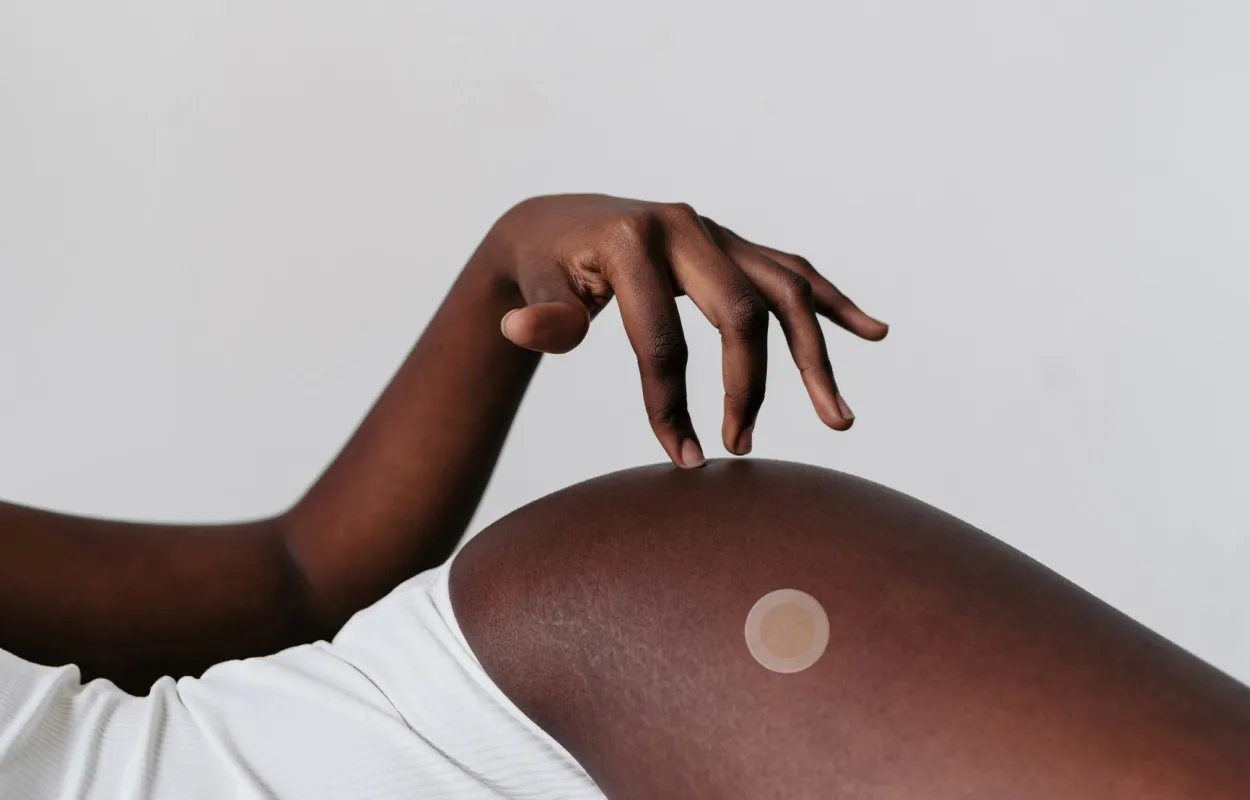How Long Should I Take Hormone Replacement Therapy?

You’ve found effective treatment for menopausal symptoms through hormone replacement. Now you might wonder how long you should continue treatment.
Exactly how long to continue hormone therapy is a decision only you and your doctor or medical practitioner can make. Finding the right answer means taking your unique health situation into account while understanding the latest research about HRT and weighing benefits against risks.
How long is it safe to take HRT?
Ideally, you want to take the lowest dose for the shortest amount of time. But taking hormones over time is less about following a set duration and more about developing a course of treatment based on your unique symptoms, needs, history and quality of life, while considering risks and benefits.
Research has typically supported an acceptable HRT duration of two to five years. However, a 2017 study in the Journal of the American Medicine Association (JAMA) found that taking HRT for five to seven years was not associated with long-term mortality risks. Because there isn’t yet any longer-term safety data, the decision about long-term use will depend on the conversations you have annually with your doctor.
The question isn’t ‘How long is it safe to stay on HRT?’ so much as ‘How long is it appropriate for me as an individual to stay on HRT?’. – Dr. Leah Millheiser
How long should I take HRT?
Each woman is different—her current health, her history, her family’s health history, and her unique experience of menopause and its symptoms.
The best approach to understanding HRT duration is to talk to your doctor or medical practitioner so you can discuss your symptoms and needs, as well as benefits and risks.
On the benefits side of HRT, your discussion might include:
- Vasomotor symptoms you are experiencing (hot flashes, night sweats)
- How your symptoms might be affecting your life and work
- Whether intimacy or quality of relationship with your partner is compromised
- How fatigue from poor sleep might affect your work productivity
- How irritability might be impacting your relationships with family and friends
In terms of risks, you might discuss:
- Your age, especially if you’re 60 or older
- Whether or not you started menopause within the past 10 years
- Your overall health, including current diagnoses and medications
- How your health history might affect your suitability for HRT
- Your family’s health history (cancer, cardiovascular or heart disease, dementia, stroke)
Some women may stay on hormones for two or three years, while others will need five to seven years, or maybe longer. The goal is to be on the lowest dose that will treat and manage your symptoms in such a way that the benefits outweigh the risks.
The decision for longer-term HRT use comes down to what we know about the science and research, what your symptoms and health history are, and what the risk-benefit ratio is for you. – Dr. Leah Millheiser
How do I know when it’s time to stop taking HRT?
If you’re doing well on HRT, you won’t be experiencing symptoms. That means you won’t necessarily know when it’s time to taper off until you consult with your medical practitioner. Hot flashes and night sweats tend to go away over time. On average, in fact, vasomotor symptoms can last up to seven years, though for some it may be only two or three.
Your healthcare practitioner can update you on the latest research on menopause and hormones. For instance, a 2020 study by the Women’s Health Initiative (WHI) showed that women under age 60 and within 10 years of menopause are optimal candidates for HRT.
Some women will only turn to HRT for short-term therapy. Others will try going off HRT after a few years but might go back on it if their symptoms return and persist. Yet others may experience vasomotor symptoms for many years and prefer to stay on a low dose, checking in with their doctor each year for re-evaluation.
Ultimately, the decision to taper off is one you must make individually with your healthcare provider. Together, you will take into account your symptoms, age, health history, quality of life, yearly evaluation outcomes, and safety considerations based on the latest HRT research.
What’s the process for stopping HRT?
Once you and your healthcare provider decide to try stopping your hormone medications, you will tapered off, which means your dose will be decreased gradually to see how you respond.
Depending how far into menopause you are, your symptoms can temporarily return but should subside again on the lower dose. If your symptoms come back and persist for more than a month or so, the dose can be increased to what it was until you are ready to try tapering off again.
The goal is to be on HRT long enough to reduce vasomotor symptoms and improve your quality of life. We don’t know whether “long enough” means two, five or seven years—or perhaps even longer—but that’s why the yearly evaluations are so important.
When you go off hormone treatment, pay attention to vaginal health and bone health. Talk to your healthcare provider about vaginal estrogen therapy, which is not associated with increased risk of cancer, cardiovascular or heart disease, dementia or stroke. Also ask about bone health and how you can prevent bone loss.
HRT is not intended to be a lifelong medication but a treatment to help you manage symptoms so you can improve your quality of life during menopause.



